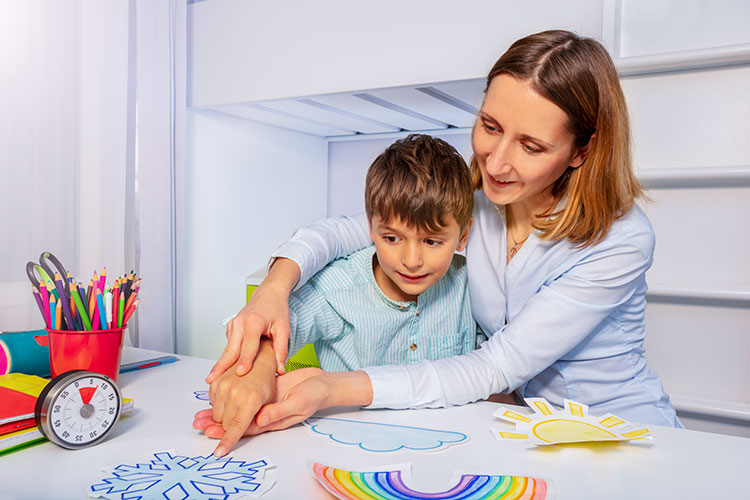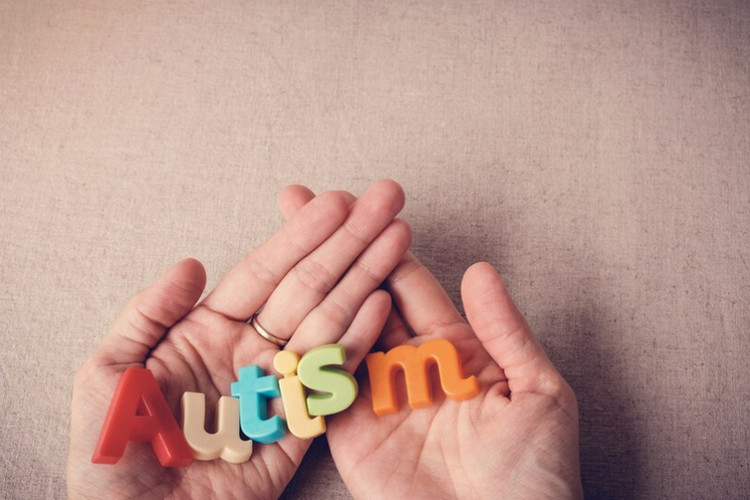


Parents are encouraged to educate themselves on biomedical treatment and therapy options and make well-informed decisions about the care of their child with symptoms of autism spectrum disorder having complex needs. Resources and links about autism awareness are offered for informational purposes only and do not reflect the opinion or endorsement of 4Kids.com or any affiliate of 4Kids.com.
Biomedical treatment and therapy have been used for decades and are intended to ease some of the symptoms of autism spectrum disorder and promote the body’s overall health. Biomedical interventions are not intended to replace traditional drug-based therapies prescribed by medical doctors.
A biomedical approach focuses on certain aspects of health where the intent is to balance nutrient levels and support the various processes and systems of the body. Hence, the person feels better and functions better.
In addition to balancing nutrient levels, a practical biomedical approach involves potentially vast dietary and lifestyle interventions. Parents and caregivers of those with autism spectrum disorder who utilize biomedical therapies for their loved ones with autism find that it is an ongoing process of removing, replenishing, repairing, and restoring.
Biomedical treatment of a person with autism who may be experiencing a range of health symptoms is a team effort that becomes more of a marathon than a sprint. Parents and practitioners first focus on removing anything that “offends” or doesn’t support the health of a child with autism who is having physical symptoms.
Removing allergenic foods, pro-inflammatory foods, potentially irritating chemicals, sources of mold, environmental toxins, etc., is a critical step in biomedical therapy. Impaired detoxification systems may lead to dysfunctional processing of the chemical irritants all around us.

With the removal of health offenders underway, biomedically-focused practitioners can begin the process of identifying and replenishing what the body needs to function better. This is where testing becomes essential to the biomedical journey.
Practitioners, often M.A.P.S. doctors who work with children with autism, will help parents navigate the lab tests available. Although many labs require blood draws, there are tests utilizing saliva, hair, urine, and fecal samples to measure the body’s nutrient status. There are ways to combine blood draws so a child is subjected to fewer pokes.
M.A.P.S. doctors of today are the DAN doctors of the past. The Medical Academy of Pediatric Special Needs is a dedicated group of professionals who specialize in the care of a child or teens with autism spectrum disorder and related complex health conditions. Biomedical protocols are uniquely designed under this scientific, evidence-based approach, and proper lab tests and analysis are vital steps taken in a biomedical approach.
When replenishing the body to improve its biochemistry, a biomedical approach will also focus on repairing the body. Every person with autism spectrum disorder is different in nutrient status, detoxification ability, and neurological functioning. Yet, studies have revealed commonalities in those with an autism spectrum disorder through the last three decades.
A solid biomedical approach considers those standard features and looks to alleviate prevalent health issues such as digestive disorders, microbial infections, sleep disorders, mitochondrial disorders, apraxia of speech, and more.

A good biomedical treatment plan should emphasize restoring proper function to the systems and processes of the body that aren’t working so well. In autism, it can be common for the person to have one or more co-occurring medical conditions that negatively affect their health.
These conditions can include: metabolic dysfunction, methylation, and sulfation disorders turn proteins on/off, immune dysregulation, oxidative stress, neuroinflammation and microglial activation, enzyme deficiencies, pica, and obsessive-compulsive disorder. Reputable physicians and researchers have delved into the connection between autism and PANS, and new data shows a correlation between these conditions.
So if a biomedical path for the treatment of symptoms of autism sounds promising, what exactly does following this path entail? Parents embarking on a biomedical journey with their child or teen with autism must realize several things.
First, the journey is not clear-cut nor linear. It takes partnership with a M.A.P.S. doctor or other trusted practitioner (or perhaps a team) to navigate the testing, the implementation, and the ongoing analyses needed for actual progress. Doing it alone is possible, yet it can prove overwhelming.
Second, there is no single test and protocol that works universally. Biomedical treatment will take work to find your child’s unique patterns and challenges. And once you see something, it is common to find something else which presents additional issues.
This is not uncommon in the traditional drug approach either: long-term use of prescription drugs can reveal other problems that must be dealt with over time. As biomedical protocols focus on the whole body, finding and treating layered challenges will take time.
Third, a biomedical approach can be costly. Many insurance companies don’t cover the testing or supplementation used in a biomedical treatment plan. M.A.P.S. physicians are sometimes out of network. Parents may be paying out of pocket and seeking reimbursements through super bills.
Fourth, parents should be prepared to do intense monitoring along the way. Careful observation and recording are often essential to deciding the next step. M.A.P.S. doctors will want accurate and detailed information on everything from physical symptoms to academic progress, from eating every day to how many milligrams of each vitamin and mineral they are taking.
Next, a biomedical approach can affect the entire family and how life is lived. Supplement schedules can be strict, and therapies sought outside the home can mean additional time constraints. Reducing environmental impacts may lead to overhauling a family’s pantry and fridge and cleaning products used in the household. Dietary changes can impact how everyone’s meals are prepared.

Additionally, a biomedical approach relies on continual reassessment. Often, something that worked for a while may eventually have reduced effectiveness or not work anymore. A supplement that seemed to help may, over time, aggravate a person’s system. There is much trial and error involved in a biomedical approach.
Here are some basic treatments and therapies employed in a biomedical plan for children and teens with autism. They are presented in alphabetical order and not ranked by popularity or effectiveness. Treatments are done individually yet can be done simultaneously in some cases; M.A.P.S. practitioners and integrative physicians can safely guide parents through various protocols.
Low levels of beneficial bacteria in the gut and high sugar intake can lead to fungal overgrowth, which many with autism experience.
A study published in 2017 found that the herpes virus may be a trigger for autism. Anti-viral medications and herbal supplements are used to lower the viral load.
Cobalamin injections can help improve impaired methylation.
Improves brain function and supports social and emotional health.
CBD as an antioxidant can provide neuroprotective properties. Proper use of oils, tinctures, gummies, liquids, etc., can alleviate anxiety, aggression, self-injurious behavior, and seizures. You can try this one. https://www.makasihu.com/product/100-bioavailable-water-soluble-capsules/?ref=4kids
Due to low levels of glutathione found in some with autism, the body is at higher risk of toxic overload. Chelation is a method of removing toxic metals from the body, and EDTA and DMSA are some of the chelating agents used by physicians.

Certain proteins in foods (gliadin, casein), artificial colors, pesticides, dye, GMOs, and more can irritate the sensitive systems of some children with autism. Various diets are designed to alleviate irritants. These include Body Ecology (BED), Feingold, GAPS, GFCF, Ketogenic, Low Oxalate, Low Phenol, Rotation Diet, and SCD.
Enzymes are needed for breaking down food molecules, and children with autism can have low levels of certain enzymes or less active enzymes, which leads to malabsorption of nutrients.
Dr. Bernard Rimland was a proponent of DMG for its ability to improve speech, eye contact, sleep, behavior, and social skills.
Some children have low levels of sulfate in the body, and Epsom salt baths can effectively raise those levels. An added benefit is improved detoxification.
A cutting-edge therapy, FT shows a positive impact on GI issues and behavioral challenges by introducing gut bacteria to the microbiome.
Oral Immunotherapy is the process of systematically removing and reintroducing offending foods to train the immune system.
This powerful antioxidant is needed to protect the body from toxins. Children with autism have commonly shown depleted levels of the molecule. Oral, IV, and topical glutathione supplementation can support healthy levels and enhance detoxification.

Useful for addressing multiple issues and alleviating symptoms related to co-occurring conditions. Homeopathic remedies can be used in conjunction with most medications.
Oxygen “chambers” are designed for healing gut issues, brain inflammation, increasing blood flow to key regions of the brain, and promoting a friendly microbiome.
Elevated cytokine levels have been noted in children with autism. Immunoglobulin therapy seeks to address the resulting immune system dysregulation. Immune modulation therapy may also manage the co-occurring condition of PANS (Pediatric Acute-onset Neuropsychiatric Syndrome).
Low serotonin levels, common in autism, can cause low melatonin levels, and melatonin is needed for regulating sleep.
Stem cells need to be able to give rise to specialized cell types throughout the body. Stem cell therapy aims to regenerate and repair damaged tissues and cells. Its use in autism spectrum disorder is burgeoning.
Limited food intake, depleted soil leading to nutrient-depleted food, and impaired digestion can all lead to deficits of vitamins and minerals. Supplementation can help replenish and balance the body.
Children with autism have been found to have lower levels of omega-3 than the general population.
Minerals such as magnesium, taurine, and zinc are commonly depleted in those with autism.
Vitamins B6/P5P is one of the most studied treatments for autism. Combined with magnesium, it helps support neurotransmitters.
Based on research in “cell danger response theory,” Suramin is being studied for beneficial use in autism at UCSD School of Medicine. Researchers are hopeful that its use can address and alleviate metabolic dysfunction underlying autism spectrum disorder.

A simple medical test cannot diagnose autism; the diagnosis is based on observation of symptoms and signs. Often, diagnosing physicians tell parents some medications can help with behavior, attention, and anxiety.
Biomedical treatments and therapies can be quite beneficial for parents who want to go beyond prescription medication for their children. In some cases, parents have credited long-term use of biomedical intervention with bringing physical, mental, and emotional health to their child diagnosed with autism.
Biomedical treatments may not help every child or teen with uncomfortable symptoms and health conditions related to autism, but treatments and therapies have helped many children improve, sometimes dramatically.
Autism Research Institute (ARI)
Books (Have We Done Everything? and Children With Starving Brains)
MAPS
National Autism Association (NAA)
TACA
DISCLAIMER: This is general information, and it cannot be perfectly applied to any individual, especially without testing and proper interpretation. This information should not be construed as individual or professional help.
Air Travel with Autism – Tips on What to Bring Aboard
Why special needs parents should consider a CalABLE account
Mindfulness During Meltdowns
A Child with Autism – A Person to be Loved
Just enter your email address below and you’ll get an email every time we publish a new post!
Categories :
Tags :
Keri is a special needs parent and a veteran high school English and journalism teacher turned writer. She enjoys reading, hiking, gardening, cooking, traveling, wine tasting, and practicing yoga. Both she and her son love to create art. She has a passion for educating people on all things autism. Visit her blog at https://kerimehome.com.
View All Posts